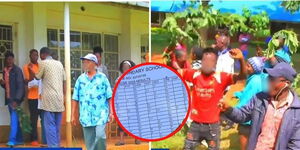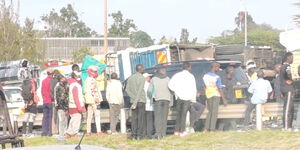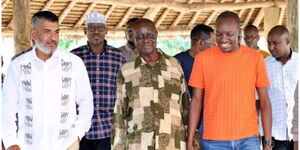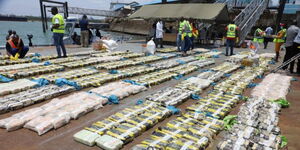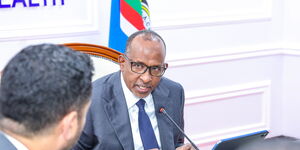The Permanent Representative of Kenya to the United Nations, Erastus Ekitela Lokaale, has been appointed as co-facilitator of a panel tasked with the review of the outcomes of the World Summit on the Information Society.
In a notice shared by the Principal Secretary for Foreign Affairs, Korir Sing’oei on Tuesday, Lokaale was appointed alongside Rytis Paulauskas, the Permanent Representative of the Republic of Lithuania.
Lokaale is tasked with co-facilitating the intergovernmental consultations to finalise modalities for the overall review by the General Assembly of the implementation of the outcomes of the World Summit on the Information Society.
The high-level event is scheduled to take place from July 7 to 11, 2025, at Palexpo in Geneva, Switzerland.
“I would like to thank the Ambassadors Lokaale and Paulauskas for accepting this important responsibility and invite them to work closely with all Member States and ensure the meaningful engagement of all relevant stakeholders in the consultations, as requested in the resolution,” reads part of the statement from Philemon Yang, a member of the All Permanent Representatives and Permanent Observers to the United Nations.
The meeting Lokaale is to facilitate will conduct a 20-year review, known as WSIS+20, to assess achievements and future challenges.
It will serve as a platform for multistakeholder discussions to assess progress, address challenges, and shape future strategies for building inclusive and development-orientated information societies.
The World Summit on the Information Society (WSIS) is a United Nations initiative aimed at building a "people-centred, inclusive, and development-oriented Information Society."
Its primary objectives include bridging the digital divide, promoting universal access to information and communication technologies (ICTs), and leveraging these technologies for sustainable development.
The summit was conducted in two phases, Geneva Phase (2003) where delegates from 175 countries convened to adopt a Declaration of Principles, outlining a roadmap for an accessible and inclusive information society.
A Plan of Action was also established, setting targets such as bringing 50 per cent of the world's population online by 2015.
The other is the Tunis Phase, which took place in 2005. This phase focused on implementing the Geneva decisions, addressing unresolved issues like internet governance and funding mechanisms.

